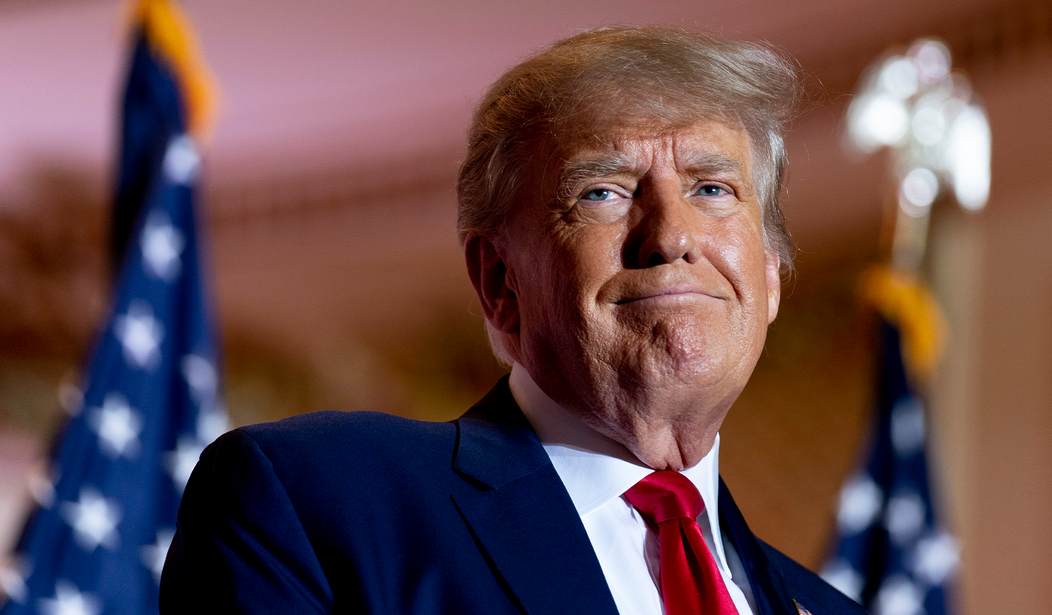Presidents Trump and Biden along with Hillary Clinton share something in common. They each have possessed classified information at their residences. Of the three, only one has been the subject of wrath from Attorney General Garland and senior Biden Administration officials, Donald Trump. But can Garland get away with prosecuting Trump alone despite not prosecuting Clinton and Biden? The answer lies in whether President Trump’s defense team possesses or can acquire proof of political discrimination by Garland in targeting the former President and in specifically declining to pursue his political opponents.
Among the three, Clinton is most culpable from the standpoint of provable intent, albeit the Espionage Act prohibits even unintentional misappropriation of classified information. Hillary knowingly, willfully had all of her email correspondence rerouted from official Department of State servers to her personal unapproved, unprotected servers in Chappaqua. She did so after State Department briefings advised that she was legally obliged to rely exclusively on the secure Department of State servers for all correspondence to her office which necessarily includes classified documents. Among the emails Clinton routed to her unsecure home server were at least 113 classified documents. That routing violated the Espionage Act as former FBI Director James Comey admitted, but he nevertheless did not prosecute Clinton. Rather, Comey opined that no reasonable prosecutor would sue her for the violations, albeit prosecutors have sued and incarcerated many for misappropriating far fewer classified documents. Moreover, Comey proved himself to be biased against Trump, cognizant with Obama and Biden that the Steele dossier was a fraud, Comey nevertheless allowed it to be presented to the FISA courts and engaged a special prosecutor on a long, costly and malicious investigation of Russian collusion charges that he and all involved knew to be unsupported and unjustified.
Recommended
Biden’s placement of classified documents in his Wilmington, Delaware private office, in storage space in his garage, and possibly among Biden’s senate records at the University of Delaware strongly suggest gross negligence which also violates the Espionage Act. Most all, if not all, of the documents in question date back to when he was Vice President. As Vice President, he did not have authority to declassify them or remove them from approved locations.
Trump possessed documents marked classified which he and others, like Cash Patel, have claimed were declassified by Trump before he left the White House. There is no evidence that proves Trump knew specific classified documents were removed from the White House and transferred to his residence, but there is ample evidence that he and his lawyers cooperated to have the documents returned to the National Archives. Yet among the three, Trump was the only one subject to an FBI residence raid, a raid that had to be approved by the Attorney General himself.
Attorney General Merrick Garland will soon decide whether he will bring criminal charges against former President Trump. If Garland brings those charges, he will be the focus of considerable congressional and public scrutiny, demanding to know why DOJ chose to pursue Trump but not President Biden, Clinton, or Hunter Biden for that matter. The issue of selective prosecution will arise, but will it provide Trump a solid defense?
A selective prosecution defense is extremely difficult to prove. It prevailed in cases pre-dating the Supreme Court’s 1996 landmark decision on the question, States v. Armstrong, but it has been largely unsuccessful since due to the high bar set by the Supreme Court in Armstrong for proving the defense. To prove selective prosecution, a defendant must show that (1) persons similarly situated to the defendant were not prosecuted; (2) that prosecutors intentionally discriminated against the defendant; and (3) that a specific discriminatory classification is evident (such as one based on race, religion, viewpoint, or political affiliation). In his excellent New York Law Journal article on the subject, former Assistant U.S. Attorney for the Southern District of New York Evan T. Barr explains that several Trump proteges and connections, including Roger Stone, Paul Manafort, and Lev Parnas all unsuccessfully asserted selective prosecution as a defense in an effort to block charges brought against them.
In any prosecution of Trump for Espionage Act violations or misappropriation of classified documents, several defenses will be available, but reliance on the defense of selective prosecution will hinge on specific evidence from whistleblowers and others establishing that the Administration targeted Trump because of his political affiliation and views while affirmatively failing to act against fellow Democrats similarly situated. The very difficult part is gaining access to specific information proving discriminatory intent because discovery against the government is often denied or severely limited by the courts and because those guilty of discriminatory intent often hide their motives, avoiding record of them.
Garland has a long history of proceeding without requisite facts in pursuit of a biased political agenda (e.g., the effort to have parents investigated and prosecuted for criticizing at school board meetings CRT and transgender policies and the failure to prosecute Hunter Biden despite overt evidence of illicit, repeated drug use, interstate prostitution, a false statement denying under penalty of perjury prior felony conviction on a gun purchase application, and a long track record of influence peddling with the complicity of his father, then Vice President Biden).
If Garland moves against Trump on the classified documents issue, Trump must marshal evidence early in his case to support a selective prosecution defense. That evidence will have to be specific proof of discriminatory intent, directly germane to the DOJ decision to prosecute him and to the DOJ’s failure to prosecute his political opponents. It may exist, but can the Trump defense team find it?
























Join the conversation as a VIP Member